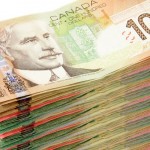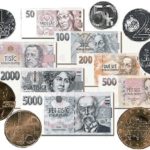On Tuesday (in GMT terms) gold for delivery in December traded within the range of $1,269.0-$1,315.4. Futures closed at $1,269.7, plunging 3.28% compared to Monday’s close. It has been the 186th drop in the past 351 trading days, a third consecutive one and also the steepest one in at least 1 year. The daily low has been a level unseen since June 24th, when the commodity went down as low as $1,253.7 per troy ounce. The precious metal has increased its drop to 3.60% so far during the current month, after gaining 0.43% in September.
On the Comex division of the New York Mercantile Exchange, gold futures for delivery in December were edging up 0.45% on Wednesday to trade at $1,275.4 per troy ounce. The precious metal went up as high as $1,277.3 during late Asian trade, while the current daily low was at $1,268.6 per troy ounce, recorded during the early phase of the Asian trading session. The latter has been a fresh 15-week low.
The US Dollar Index, a gauge reflecting the relative strength of the greenback against a basket of 6 other major currencies, was inching down 0.05% on the day at a level of 96.05, after going down as low as 95.94 earlier. Yesterday the index climbed as high as 96.39, which has been its highest level since August 9th. The gauge has trimmed its advance to 0.67% so far in October, following a 0.65% drop in September.
Gold futures tumbled to lows unseen in 15 weeks on Tuesday, as US 2-year bond yields extended their advance to fresh 2-week highs. The US Dollar was largely supported by the recent upbeat data points on consumer sentiment, manufacturing activity and also by a set of hawkish remarks by Richmond Federal Reserve President, Jeffrey Lacker, which boosted rate hike expectations regarding the Feds policy meetings in December 2016 and February 2017.
Speaking at the West Virginia Economic Outlook Conference in Charleston on Tuesday, Lacker, who currently does not have a vote but who attends policy meetings, said interest rates should already be as high as 1.5% in comparison with the present range (0.25%-0.50%). In Lackers view, the central bank should be on course to increase borrowing costs gradually, “but not too gradually”, while the present target range might lift consumer inflation above the Banks 2% objective during the next several years.
“Pre-emptive increases in the federal funds rate are likely to play a critical role in maintaining the stability of inflation”, Jeffrey Lacker noted, cited by Reuters.
Lacker is expected to speak on “Does Federal Reserve Governance Need Reform?” at Marshall University at 21:00 GMT today. Market players will be also paying a close attention to the public appearance of another Federal Reserve official. At 13:30 GMT the Fed President for Minneapolis, Neel Kashkari, is to take a statement at the “Early Childhood Development in Indian Country” Conference, which will be hosted by the Federal Reserve Bank of Minneapolis. Any remarks in regard to the Bank’s future policy or US macroeconomic environment would heighten USD and gold volatility.
Also on Wednesday, a vast data set coming out from the United States may provide further clues on the countrys economic strength. Employers in the US non-farm private sector probably added 170 000 new jobs during September, according to the median estimate by experts, following 177 000 new positions added in August. If expectations were met, this would be the slowest employment growth since April, when the revised down 149 000 new jobs were reported. In case new job growth was slower than expected in September, this would have a moderate-to-strong bearish effect on the US dollar and would boost gold. The official figure is scheduled to be released at 12:15 GMT.
A separate report by the Institute for Supply Management (ISM) may reveal that activity in United States’ sector of services increased at a faster pace in September from a month ago. The corresponding Non-manufacturing Purchasing Managers Index probably came in at a reading of 53.0 last month, according to the median forecast by experts, up from a level of 51.4 in August. If expectations were met, September would be the 81st consecutive month, when the PMI stood in the area above 50.0. In case the Non-Manufacturing PMI accelerated more than anticipated in September, this would have a strong bullish effect on the US Dollar and a strong bearish effect on gold. The official reading is due out at 14:00 GMT.
According to CME’s FedWatch Tool, as of October 4th, market players saw a 14.5% chance of a rate hike occurring at the Federal Reserve’s policy meeting in November, up from 10.3% in the prior business day, and a 63.4% chance of a hike in December, up from 61.6% in the preceding business day. As far as the February 1st 2017 meeting is concerned, the probability of such a move was seen at 65.6% on October 4th, up from 64.0% in the prior business day.
Meanwhile, silver futures for delivery in December were advancing 1.02% on the day to trade at $17.957 per troy ounce, after going up as high as $18.038 a troy ounce during the late phase of the Asian trading session.
Daily, Weekly and Monthly Pivot Levels
By employing the Camarilla calculation method, the daily levels of importance for gold are presented as follows:
R1 – $1,274.0
R2 – $1,278.2
R3 (Range Resistance – Sell) – $1,282.5
R4 (Long Breakout) – $1,295.2
R5 (Breakout Target 1) – $1,310.1
R6 (Breakout Target 2) – $1,316.1
S1 – $1,265.4
S2 – $1,261.2
S3 (Range Support – Buy) – $1,256.9
S4 (Short Breakout) – $1,244.2
S5 (Breakout Target 1) – $1,229.3
S6 (Breakout Target 2) – $1,223.3
By using the traditional method of calculation, the weekly levels of importance for gold are presented as follows:
Central Pivot Point – $1,326.4
R1 – $1,336.8
R2 – $1,356.5
R3 – $1,366.9
R4 – $1,377.3
S1 – $1,306.7
S2 – $1,296.3
S3 – $1,276.6
S4 – $1,256.9
In monthly terms, for the yellow metal we have the following pivots:
Central Pivot Point – $1,326.7
R1 – $1,348.0
R2 – $1,378.8
R3 – $1,400.1
R4 – $1,421.3
S1 – $1,295.9
S2 – $1,274.6
S3 – $1,243.8
S4 – $1,212.9





